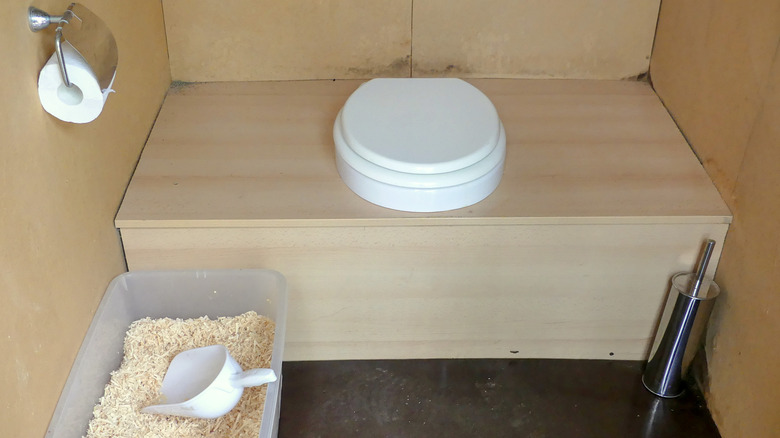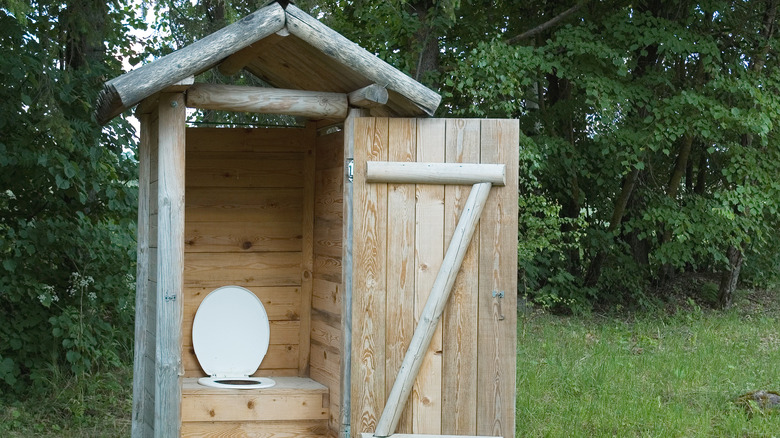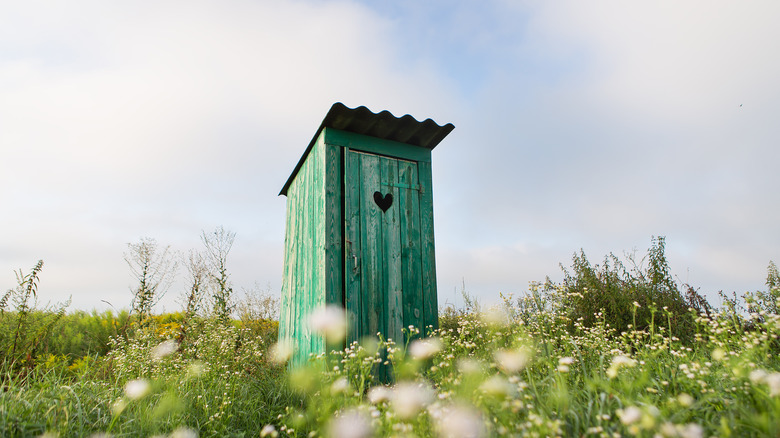Issues That Might Make You Reconsider A Composting Toilet
Composting toilets are a marvelous invention! They fulfill a necessary function in a sanitary and sustainable way, especially in off-grid living situations or at campgrounds. They are less dependent on chemicals than the 'port-a-potties' many of us are familiar with. Also, composting toilets can be a great alternative for people building homes in a place where there is limited access to traditional plumbing or sewage utilities (often provided and maintained by municipalities). However, due to their high maintenance requirements, these toilets also have limitations, and various downsides in certain situations
It's good to be informed and prepared before you decide to invest in a composting toilet. As the name suggests, they basically work by using bacteria that react with natural, carbon-containing materials such as sawdust, tree bark, or leaves to break down waste materials, similar to the composting one does for garden soil. In addition, some composting toilet systems use heaters, fans, mixers, and other mechanical means to assist with the decomposition process.
The resulting product can be used as a soil amendment for non-edible plants, just like compost or humus you buy at a garden shop or make in a compost heap. But, in some areas, this is not allowed, and composted waste from composting toilets must be hauled away and disposed of by a licensed septic hauler. This is just one of several important things to consider before deciding to install a composting toilet.
Considerations for composting toilets
Composting toilets are a sustainable option and cut back on water consumption. A composting toilet can be placed inside a dwelling or in its own outhouse, separate from the main dwelling — keep in mind this must be kept accessible even in severe winter weather. Normally, the natural materials (like sawdust or wood shavings) that are added to human waste are kept in a container such as a bucket with a scoop, so it can be added as needed. Finding a reliable source of these materials (such as a sawmill, tree removal company, or garden shop that sells pine or cedar bark mulch) is important.
Toilet paper may be used and either disposed of separately or added to the compost. Most manufacturers recommend using a natural recycled brand that is free of chemicals, dyes, or bleaches, as this will aid in the decomposition process, and also cut down on toxic chemicals in the resulting humus.
Potential problems with composting toilets
In addition to keeping the area clean, you need to regularly empty the receptacle and dispose of the waste appropriately. Failure to maintain the unit properly can lead to unpleasant results such as odors, pests such as insects or rodents, and potential hygiene issues. This is why it's important to have your composting toilet installed properly and that you have access to the proper removal and/or disposal of the waste.
While in some cases a composting toilet doesn't need a power source, many of the newer models do require some sort of power hook-up for heating, ventilation, and mixing options. Keeping that power source functioning is key to the toilet working properly, so you may want to consider a backup plan if you have occasional power outages.
Another consideration is the speed of decomposition and establishing a schedule of regular maintenance. This will probably become easier as you get used to using your composting toilet, but various factors are important to keep in mind. For example, too much liquid or moisture can slow down the rate of decomposition, and you'll need to balance this with adding more materials (wood shavings, etc.) until the right mixture is achieved.


